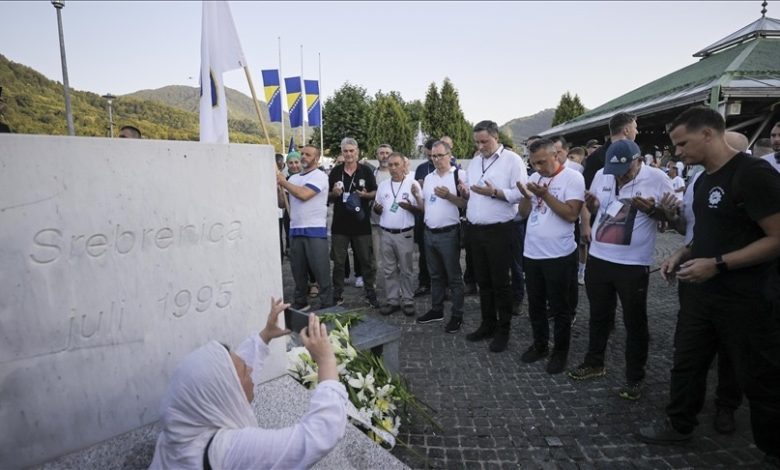Bosnia Marks 29th Anniversary of Srebrenica Genocide

Bosnia and Herzegovina marked the 29th anniversary of the Srebrenica genocide Thursday in the wake of several developments since the killing of more than 8,000 civilians in July 1995, including the sentencing of 45 of those responsible for the atrocity to nearly 700 years in prison.
On Dec. 21, 1991, Bosnian Serbs proclaimed their own republic after voting against independence from Yugoslavia in a referendum.
On Jan. 9, 1992, they proclaimed the Republic of the Serbian People in Bosnia-Herzegovina but did not officially declare independence.
Bosnia and Herzegovina formally declared independence following a referendum held on Feb. 29 and March 1, 1992, which sparked a three-year war.
The war lasted until Dec. 14, 1995, and more than 100,000 people were killed and 2 million had to migrate.
The UN Security Council in the spring of 1993 declared Srebrenica a “safe area.” But Serb troops led by Gen. Ratko Mladic – who was later found guilty of war crimes, crimes against humanity and genocide – overran the UN zone.
The fate of approximately 7,000 people who disappeared during the war is still unknown.
In a case heard at the International Criminal Tribunal for the former Yugoslavia (ICTY) in The Hague, the Netherlands, Serbian commander Mladic was sentenced to life imprisonment for many crimes, including genocide. The sentence was approved at an appeal hearing on June 8, 2021.
Radovan Karadzic, the leader of the Bosnian Serbs during the Bosnian War, was sentenced to 40 years in prison for many crimes, including the Srebrenica Genocide, and then to life imprisonment in an appeal case.
In its decision in 2007, the International Court of Justice in The Hague described what happened in Srebrenica and its surroundings as a “genocide,” based on evidence from the ICTY.



